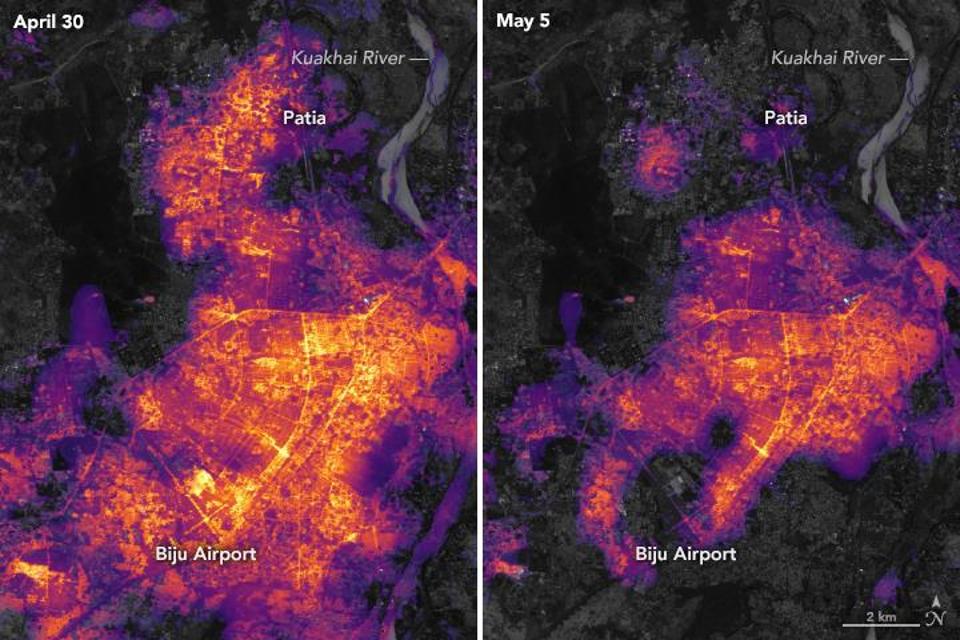The fury of Fani, wherever it struck, has been on invitation by the citizens of this world. Global climate change has been a matter of worry and discussion, but of very little action. Droughts in Central and Western India to Africa, earthquakes stretching from Indonesia to Nepal, intense rains resulting in floods in Kerala, a sudden severe winter in Europe 2018, and such unpredictable changes are becoming too regular across the globe, that may not be ignored. Fani, the cyclone that made landfall at Puri in Orissa and continued its kiss of destruction to Bangladesh may not be considered as a transient natural calamity that will not recur. Fani turned the clock back to at least two decades to when on 29 October 1999, Orissa had witnessed the last Super Cyclone. With innumerable deaths and a completely paralysed government machinery, the aftermath in 1999 had seemed horrific. Those of the present generation who remember the Super Cyclone would also recollect that there were no smart phones, 4G, Internet or even a well equipped force like the ODRAF. The governmental paralysis hampered relief and rescue work as well as it could not assess the extent of damage. In the past two decades, multiple natural calamities in the form of cyclones such as Phailin, HudHud, Aila and even Titli of last year, and a flood or two, had been very well handled by the government. The target of ‘Zero Deaths’ had nearly been achieved and probably a smugness had crept into the relief and rescue mechanism. With comparatively lesser urban damages, the threats of the past years had seemed far away from the seats of power. It is no doubt that rural Orissa constantly underwent battering by multiple natural calamities. With international praise pouring in for deft handling by the state government, the complacence in dealing with such calamities could possibly have grown. This could have been a major reason for the complete collapse of the governance system that has been noticed in the past two days after Fani. The recent completion of polling for the Elections 2019 could also be an important reason for the non performance of the government. The lack of political will may have hampered decision making and damaged the relief and rescue operations. However, that apart, the past years did not teach lessons deep enough to the system. Although there has been a burgeoning growth in matters pertaining to technology, the same technical backup has come crashing down. Most prominent amongst all those is power supply. Although corporate and offices would add telecommunications infrastructure breakdown as being equally important, but power remains at the heart of survival today. Efforts and financial resources could have been invested in taking power cables underground, especially in coastal districts of the state where such calamities are common and come in plenty. While the scope still exists to invest from today onwards in making power supply more secure to both rural and urban consumers, the desire to do so is very unlikely to manifest. Without energy supply, both rural and urban coastal Orissa is being deprived of drinking water. Most affected districts have proper drinking water supply systems even in villages. However, without electricity, it is difficult to pump water for supply. While the courageous work of voluntary organizations, ODRAF, municipal bodies and even individuals must be praised yet all that is only ‘cure’, not prevention.
Natural calamities come and go on their own accord. Even modern industrialized nations like the US bear the brunt of natural calamities such as hurricanes, floods and twisters on a regular basis. There also, it takes time for essential services to return to normal. All this is about how government could or should function to effectively face disasters wreaked by Nature.
But let us not forget the role of the common citizen in effectively facing such times of crisis. Except rare cases of violence and snatching of relief material in some other countries, it must be admitted that most others do not behave the way we do in India. The recent events on the Bhubaneswar-Puri highway and a few other places are a sad reminder that the common people’s ire could be misused by unscrupulous elements, as seen earlier. If the common citizen does not take note and continues protesting against a system that is non-functional, then the result could be that genuine help will be waylaid by goons. Instead of protests in the form of road blockages and violence, people have to realize and rethink that their existence will depend more upon their own abilities in such times of crisis. A truly healthy nation is one where the citizenry is least dependent on government doles.
